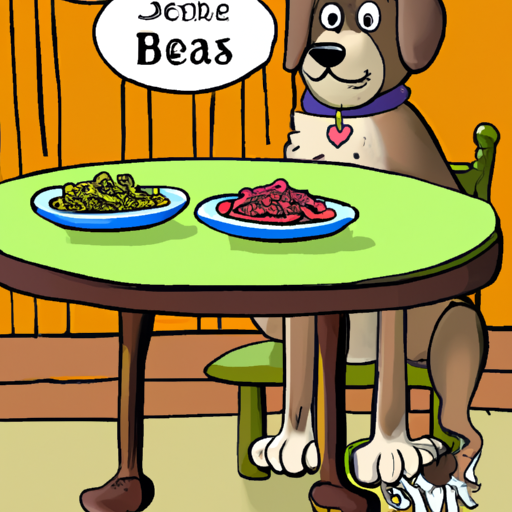Introduction
You adore your dog. They’re not just a pet, but a beloved family member, and you want to give them the best care possible. You’re always looking for ways to improve their diet and keep them healthy. You’ve probably wondered if it’s safe to share some of your favorite foods with them, such as beans.
Why Beans?
Beans are a fantastic source of protein and fiber, and they’re packed with vital nutrients. They’re beneficial for keeping the heart healthy, controlling weight, and boosting energy levels. But you’ve heard conflicting advice on whether it’s safe for dogs to eat beans. Let’s clear up the confusion.
- Green Beans: These are safe for dogs to eat, and they’re a good source of vitamins K and C. They can be served raw, cooked, or as a frozen treat, but always without any added salt or seasonings.
- Black Beans: They’re high in protein and fiber, but they should be cooked before serving to your dog. Again, avoid adding any salt or seasonings.
- Kidney Beans: Kidney beans are also safe for dogs, but they must be thoroughly cooked. Raw or undercooked kidney beans can be toxic to dogs.
- Pinto Beans: These beans are safe for dogs in small amounts and when cooked. They’re high in protein and fiber, but they can also cause gas.
- Chickpeas: Chickpeas, also known as garbanzo beans, are safe for dogs to eat when cooked. They’re high in protein and fiber, and they can help reduce cholesterol.
However, not all beans are safe for dogs to eat. Avoid feeding your dog baked beans, as they’re usually cooked with harmful ingredients like onions and garlic. Also, refrain from feeding them raw or red beans, as these can be toxic.
| Safe Beans | Preparation | Notes |
|---|---|---|
| Green Beans | Raw, cooked, or frozen | No salt or seasonings |
| Black Beans | Cooked | No salt or seasonings |
| Kidney Beans | Thoroughly cooked | No salt or seasonings |
| Pinto Beans | Cooked | Small amounts |
| Chickpeas | Cooked | No salt or seasonings |
Feeding Tips
When introducing new foods to your dog’s diet, always start with small amounts and monitor for any adverse reactions. Beans should be served as a treat or supplement and should not replace their regular dog food. It’s also important to remember to always cook beans thoroughly to eliminate harmful substances and ease digestion.
Conclusion
Beans can be a healthy addition to your dog’s diet, but it’s important to introduce them properly and choose the right types. Always consult with your vet if you’re unsure about any changes to your dog’s diet.
FAQ
Q: Can dogs eat canned beans?
A: Canned beans often contain added salt and preservatives, which can be harmful to dogs. It’s better to use fresh, cooked beans.
Q: How much beans can I give my dog?
A: Beans should make up no more than 10% of your dog’s daily diet.
Q: Can beans replace meat in my dog’s diet?
A: While beans are high in protein, they don’t contain all the essential amino acids your dog needs. Therefore, they cannot replace meat entirely.
Q: Can dogs be allergic to beans?
A: Yes, like people, dogs can also be allergic to certain foods, including beans. Always monitor your dog’s reaction when introducing new foods.



